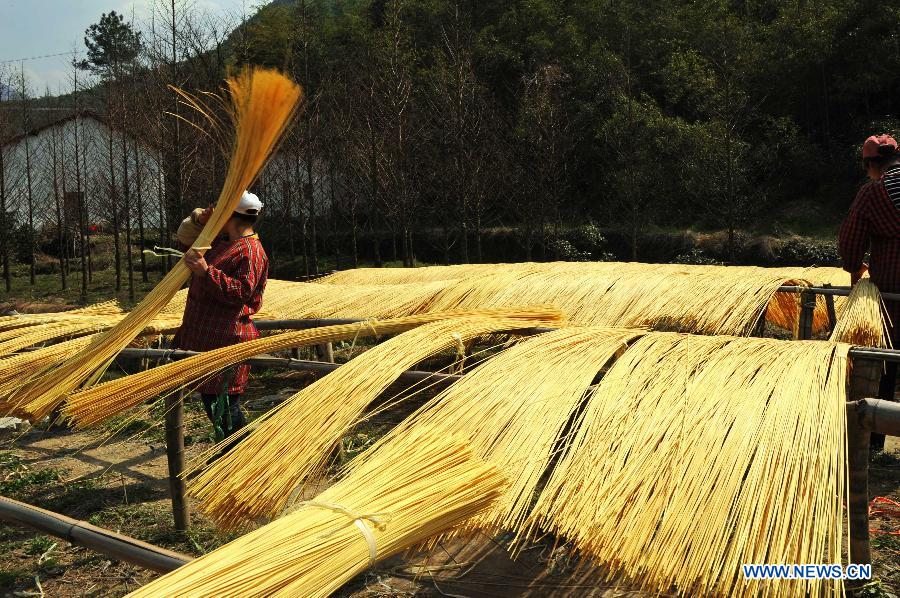Prosperous bamboo industry in SE China's Zhejiang Province
 0 Comment(s)
0 Comment(s) Print
Print E-mail Xinhua, March 31, 2012
E-mail Xinhua, March 31, 2012
Best known for its rich bamboo reserves, Anji is taking an eco-friendly, low-carbon and recyclability approach to its bamboo processing industry. Using advanced technologies, local enterprises have managed to make extensive use of all bamboo parts: bamboo leaves, stalks, roots and even ground powder of the plant. Anji's bamboo forests cover an area of 1,080,000 mu, or 72,000 hectares, accounting for less than 1.8 percent of the total bamboo forest area in China. Despite this tiny share, the total output value of the county's bamboo industry reached 12.5 billion yuan [1.99 billion U.S. dollars] in 2011, about one fifth of the national output value. With over 3,000 bamboo products, bamboo enterprises in Anji have built up a pillar industry conducive to the growth of farmers' income, the uplift of forestry economic returns and the development of rural economy. Anji has been restructuring and upgrading its bamboo industry for more than a decade. Today, the county possesses a complete line of bamboo enterprises, including bamboo growers, bamboo ware manufacturers and bamboo parks for sightseeing, with some 45,000 jobs provided to the locals as of 2011.
Farmers sort out bamboo filaments to be made into mats in Anji County, east China's Zhejiang Province, March 27, 2012. [Xinhua/Tan Jin]





Go to Forum >>0 Comment(s)